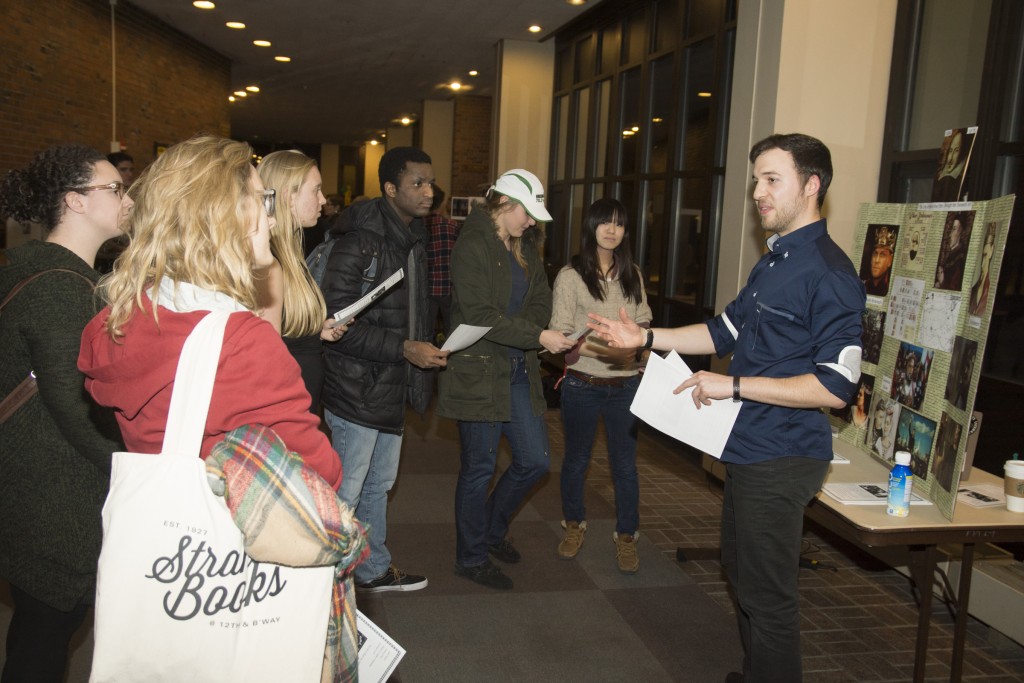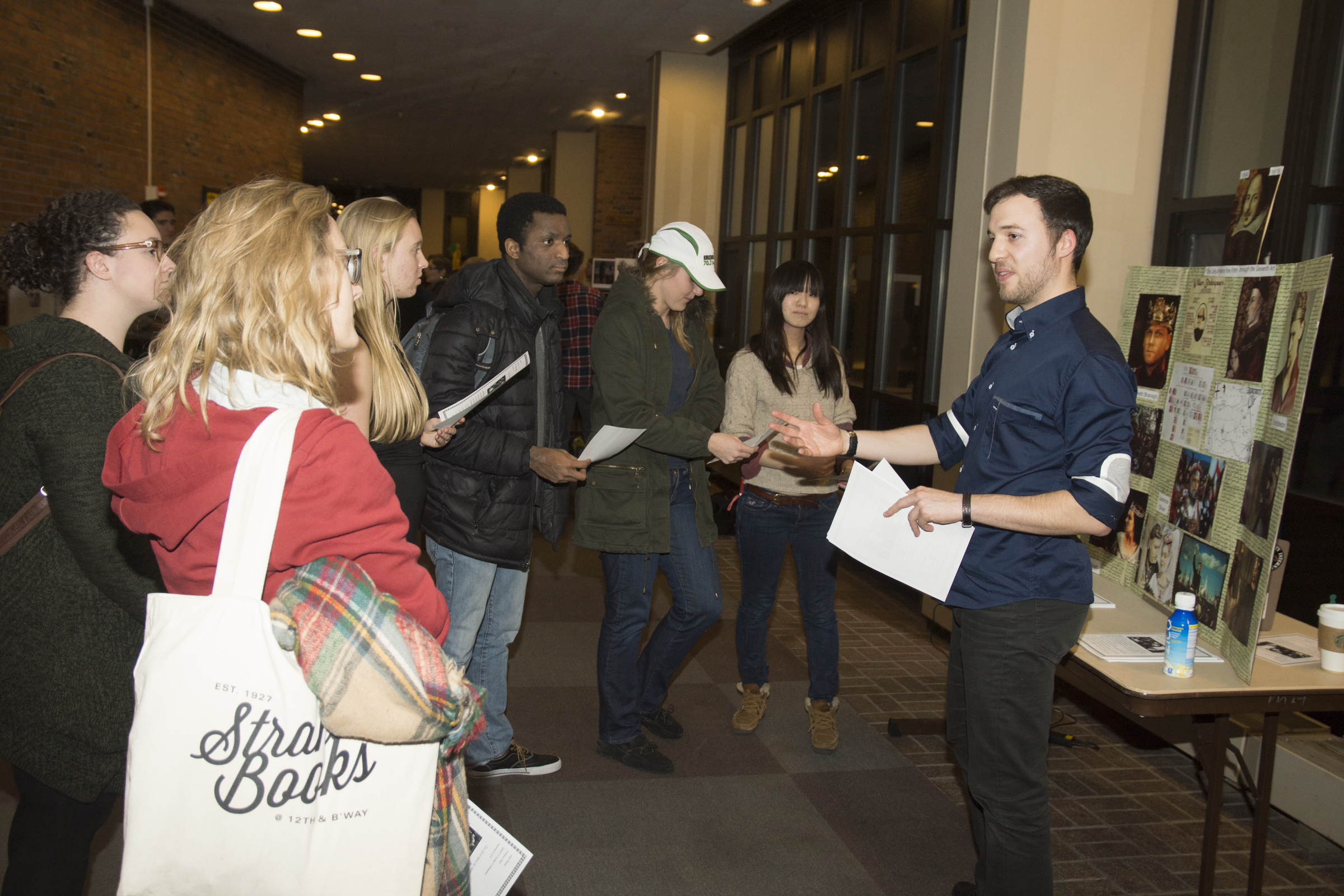Graduate students go to the movies, discover new meanings in Shakespeare
 A semester’s worth of English graduate student research came to fruition as students of Associate Professor Thomas Olsen’s “Studies in Shakespeare” course presented analyses of selected film adaptations of some of the Bard’s most famous dramas at a “Shakespeare in Cinema” event.
A semester’s worth of English graduate student research came to fruition as students of Associate Professor Thomas Olsen’s “Studies in Shakespeare” course presented analyses of selected film adaptations of some of the Bard’s most famous dramas at a “Shakespeare in Cinema” event.
[Click here to view full gallery and download photos]
Victoria Prashad ’14 (Adolescence Ed: English) ‘16g (English), whose thesis addresses the culture of violence laid bare in Julie Taymor’s Titus, explained that “What’s really cool about working with film and literature is that it forces you to make new connections you wouldn’t otherwise make. I would never have thought of youth initiation to violence, just reading Titus Andronicus on the page. By examining the differences between the play and the movie, you can really locate the agenda of the director, and what an impact that has on how we interpret the work today.”
The event featured a range of scholarship on a number of different films, but all projects were united by their use of modern interpretative tools and viewpoints to better understand the original texts.
“I used to be a psychology major before switching to English,” said Brendan Delury ’14 (English) ‘15g (Adolescence Ed: English), who worked with Michael Almereyda’s Cymbeline. “This project helped me realize that when people read or watch a film or dramatic performance, there’s a lot happening psychologically that we don’t necessarily understand. I’ve come to believe that looking at film and literature through a neurological lens can improve the way we think about them and create them.”
Many of the adaptations of Shakespeare’s plays under consideration, such as Billy Morrissette’s Scotland, PA and Baz Luhrmann’s Romeo + Juliet, cast these stories in unique, modern settings, encouraging contemporary critics to develop new ways of understanding the plays and the historical periods they recreate.
“One of the major topics of this project is to look at the different meanings possible in the different media of theatre and film,” said Alex Pennisi ’12 ‘16g (English), who studied Peter Brook’s King Lear. “Both use sound and sight as the dominant means of conveying information to audiences, but they differ in that film relies more on and can do more with visuals, while drama depends more on language to define place and character.”
In challenging students to use film to develop their own original perspectives on the texts, the “Shakespeare in Cinema” event evinced the Department of English’s mission of supporting lessons in literature and critical thinking with comprehensive historical context.
More information about English Graduate Studies at SUNY New Paltz is available on the Department’s webpage.

